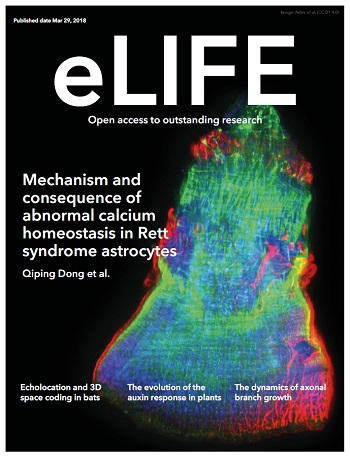Early moderate prenatal alcohol exposure and maternal diet impact offspring DNA methylation across species
IF 6.4
1区 生物学
Q1 BIOLOGY
引用次数: 0
Abstract
Alcohol consumption in pregnancy can affect genome regulation in the developing offspring but results have been contradictory. We employed a physiologically relevant murine model of short-term moderate prenatal alcohol exposure (PAE) resembling common patterns of alcohol consumption in pregnancy in humans. Early moderate PAE was sufficient to affect site-specific DNA methylation in newborn pups without altering behavioural outcomes in adult littermates. Whole-genome bisulfite sequencing of neonatal brain and liver revealed stochastic influence on DNA methylation that was mostly tissue-specific, with some perturbations likely originating as early as gastrulation. DNA methylation differences were enriched in non-coding genomic regions with regulatory potential indicative of broad effects of alcohol on genome regulation. Replication studies in human cohorts with fetal alcohol spectrum disorder suggested some effects were metastable at genes linked to disease-relevant traits including facial morphology, intelligence, educational attainment, autism, and schizophrenia. In our murine model, a maternal diet high in folate and choline protected against some of the damaging effects of early moderate PAE on DNA methylation. Our studies demonstrate that early moderate exposure is sufficient to affect fetal genome regulation even in the absence of overt phenotypic changes and highlight a role for preventative maternal dietary interventions.产前早期中度酒精暴露和母体饮食对不同物种后代 DNA 甲基化的影响
妊娠期饮酒会影响发育中后代的基因组调控,但结果却相互矛盾。我们采用了与人类妊娠期饮酒常见模式相似的短期中度产前酒精暴露(PAE)小鼠生理相关模型。早期中度 PAE 足以影响新生幼鼠的特定位点 DNA 甲基化,而不会改变成年幼鼠的行为结果。新生儿大脑和肝脏的全基因组亚硫酸氢盐测序显示,DNA甲基化受到的随机影响主要是组织特异性的,有些扰动可能早在胚胎发育期就开始了。DNA甲基化差异富集在具有调控潜力的非编码基因组区域,表明酒精对基因组调控的广泛影响。在患有胎儿酒精谱系障碍的人类队列中进行的复制研究表明,一些影响在与疾病相关的基因上是可转移的,这些基因包括面部形态、智力、教育程度、自闭症和精神分裂症。在我们的小鼠模型中,富含叶酸和胆碱的母体饮食可防止早期中度 PAE 对 DNA 甲基化的一些破坏性影响。我们的研究表明,即使没有明显的表型变化,早期中度 PAE 也足以影响胎儿的基因组调控,并强调了预防性母体饮食干预的作用。
本文章由计算机程序翻译,如有差异,请以英文原文为准。
求助全文
约1分钟内获得全文
求助全文
来源期刊

eLife
BIOLOGY-
CiteScore
12.90
自引率
3.90%
发文量
3122
审稿时长
17 weeks
期刊介绍:
eLife is a distinguished, not-for-profit, peer-reviewed open access scientific journal that specializes in the fields of biomedical and life sciences. eLife is known for its selective publication process, which includes a variety of article types such as:
Research Articles: Detailed reports of original research findings.
Short Reports: Concise presentations of significant findings that do not warrant a full-length research article.
Tools and Resources: Descriptions of new tools, technologies, or resources that facilitate scientific research.
Research Advances: Brief reports on significant scientific advancements that have immediate implications for the field.
Scientific Correspondence: Short communications that comment on or provide additional information related to published articles.
Review Articles: Comprehensive overviews of a specific topic or field within the life sciences.
 求助内容:
求助内容: 应助结果提醒方式:
应助结果提醒方式:


